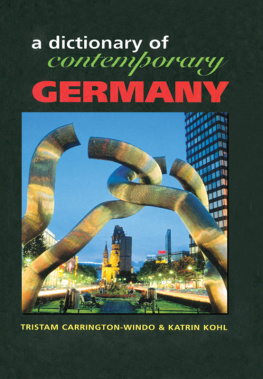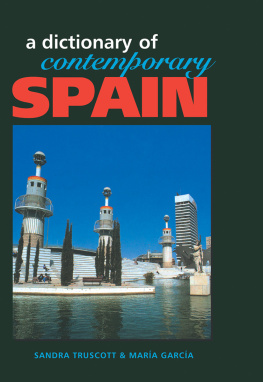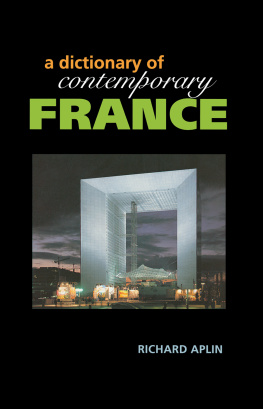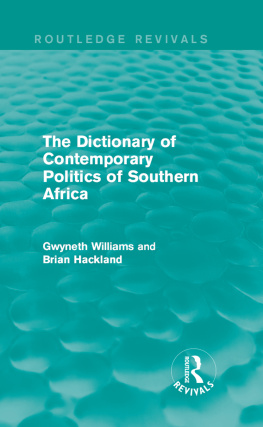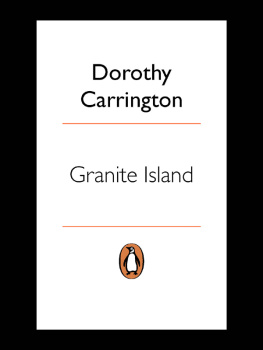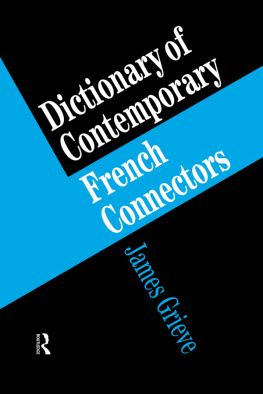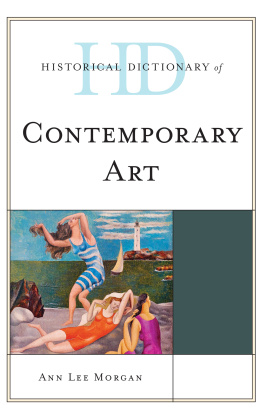Copyright 1996 Tristam Carrington-Windo and Katrin Kohl
First published by Hodder & Stoughton 1996
Published in the United States of America by Fitzroy Dearborn Publishers
This edition by Routledge:
Routledge
Taylor & Francis Group
2 Park Square, Milton Park
Abingdon, Oxon OX 14 4RN | Routledge
Taylor & Francis Group
711 Third Avenue
New York, NY 10016 |
All rights reserved. This work is copyright. Permission is given for copies to be made of pages provided they are used exclusively within the institution for which this work has been purchased. For reproduction for any other purpose, permission must first be obtained in writing from the publishers.
A Cataloging-in-Publication record for this book is available from the Library of Congress.
ISBN 1-57958-114-5
Cover photo Chad Ehlers/Tony Stone Images
For Alice and Eliot
Foreword
A Dictionary of Contemporary Germany has over 2,000 entries providing explanations of terms and abbreviations used in the contemporary German press, and gives information about institutions and personalities in German public life. The dictionary is intended for students of German and other readers who require information on Germany of the kind that an educated person living in Germany would tend to be familiar with. Particular emphasis has been placed on terms connected with national and local government and education. In view of the federal nature and history of Germany, the dictionary highlights regional differences in all aspects of culture and public life. The economic importance of Germany is reflected in the entries on major companies, trade fairs and business concepts.
The dictionary cannot lay claim to being comprehensive in any systematic sense. Entries have been selected on the basis that they provide important information on contemporary German life. Occasionally more off-beat entries are included that give peripheral detail, such as that for the town SWAKOPMUND in Namibia, a remnant of Germanys colonial aspirations. Words that pose no particular linguistic or conceptual problem for the English user have normally not been included (e.g. Schule is not given but GYMNASIUM is; however, UNIVERSITT is given because it needs to be distinguished from HOCHSCHULE ). Usefulness has been the guiding principle rather than systematic inclusiveness. A severe limitation is of course the exclusion of information on Austria and Switzerland, and especially the artificial wedge driven between German, Austrian and Swiss culture. Institutions and concepts relating to the GDR have been excluded unless they continue to play an active part in contemporary life in the united Germany. Personalities have been limited to those who are alive at the time of going to press, and in the case of politicians normally those in office, although in some cases information on other personalities may be found under a more general heading (e.g. Hitler under DRITTES REICH ).
The arrangement of the keywords is alphabetical. Where they consist of more than one word, the second (and third) word is treated separately, so the following keywords would be found in this order:
DEUTSCH-POLNISCHER GRENZVERTRAG
DEUTSCHE LUFTHANSA AG
DEUTSCHER FILMPREIS
DEUTSCHES ARZNEIBUCH
Each word in small capital letters within an entry refers the reader to another keyword. Abbreviations are given as keywords with cross references to the full form, where the explanation will be found. Where the abbreviated form is the official designation, the details are given there (e.g. BMW AG ). We have aimed to avoid sending the reader on a dictionary-go-round from a capitalised cross-reference within one entry to a keyword that in turn refers on, but occasionally this has proved unavoidable where officialese would fail to reflect common usage, as with a reference to the broadcasting corporation ZDF , where the explanation is in fact under the full form ZWEITES DEUTSCHES FERNSEHEN . Towns with populations under 200,000 inhabitants have been included only in special cases (e.g. capitals of the Lnder, UNESCO world heritage sites). Universities are preceded by the town or city in which they are located (e.g. BERLIN, FREIE UNIVERSITT ). Placenames, organisations and institutions that are now historical are in italics (e.g. kingdom of Wrttemberg ), except when they refer to a keyword and are in small capitals (e.g. SCHLESIEN ). The German form of towns, organisations and political entities has normally been used (e.g. Sachsen, Mnchen, Potsdamer Abkommen, Land, Regierender Brgermeister).
Population, membership and circulation figures are based on a variety of contemporary sources, including information supplied direct by towns, companies, etc. They have been given in round figures and are of course subject to fluctuation.
We should like to express our gratitude to the many towns and organisations in Germany who have provided information for this book. We also wish to thank the colleagues and friends who have helped in its compilation, and particularly Gordon Townsend for his practical support. Thanks are due especially to Gnter Kohl (Ass. jur.), who read many of the entries and supplied invaluable Information on political and legal subjects.
Our aim in writing this dictionary is to provide readers of German with a snapshot of life in contemporary Germany and a tool for accessing sources about Germany. The authors have made every effort to ensure that the information is accurate but welcome any corrections or suggestions from readers.
Tristam Carrington-Windo
Katrin Kohl
Oxford, April 1996
About the authors
Tristam Carrington-Windo worked as an editor of biographical reference works in Germany for three years. He is now a scientific and technical translator who has worked in the German market since 1980. He has published German language courses and is a visiting lecturer at the University of Westminster.
Katrin Kohl is a Faculty Lecturer in German at the University of Oxford and Fellow in German at Jesus College, Oxford. She has published multi-media German language courses with the BBC as well as books and articles on German language and literature.
The authors have jointly published Deutsche, Business Magazin (Hodder & Stoughton, 1991) and German means Business (BBC, 1993).
A
AA
See: AUSWRTIGES AMT
Aachen (Aix-La-Chapelle)
The most westerly city in Germany is situated in NORDRHEIN-WESTFALEN close to the Belgian and Dutch borders (dialling code 02 41, postal area code 52). Aachen has played an important role in Germanys history: after 794 it became the principal seat of the Emperor Charlemagne (Karl der Groe), and German kings were crowned in the cathedral between 936 and 1531. The citys magnificent cathedral with its DOMSCHATZKAMMER has been made a UNESCO world heritage site. Aachens annual Karlsfest is held on 31 January each year in honour of Charlemagne, an international equestrian competition is held at the beginning of June, and the Stadtfest with theatre, music and pantomime takes place in September.
The city has a population of some 255,000 with a total student population of around 46,000 (1 UNIVERSITT and 3 other HOCHSCHULEN ) and about 13% foreigners (26% Turkish). A coalition between the SPD and BNDNIS 90/DIE GRNEN has been running the city on a slim majority since 1989. Industries include paper, food and drink, chemicals, mining and electrical engineering. Important companies include Zentis, Lindt, Sprngli, PHILIPS and Uniroyal with products such as tyres, chocolates, jam and the famous Aachener Printen (long, spicy Christmas biscuits).


